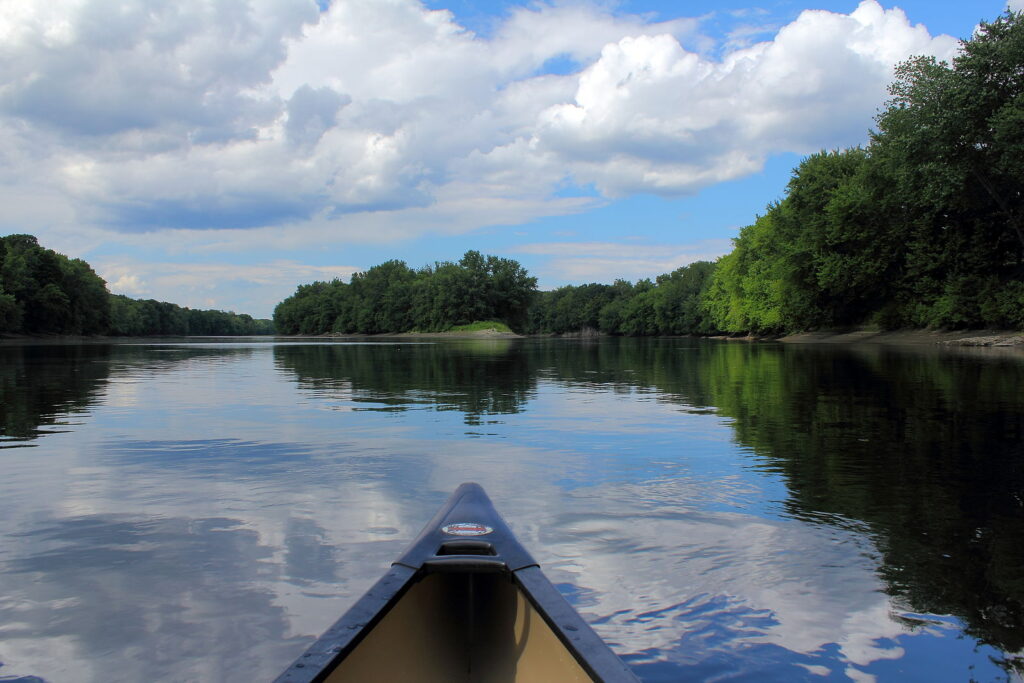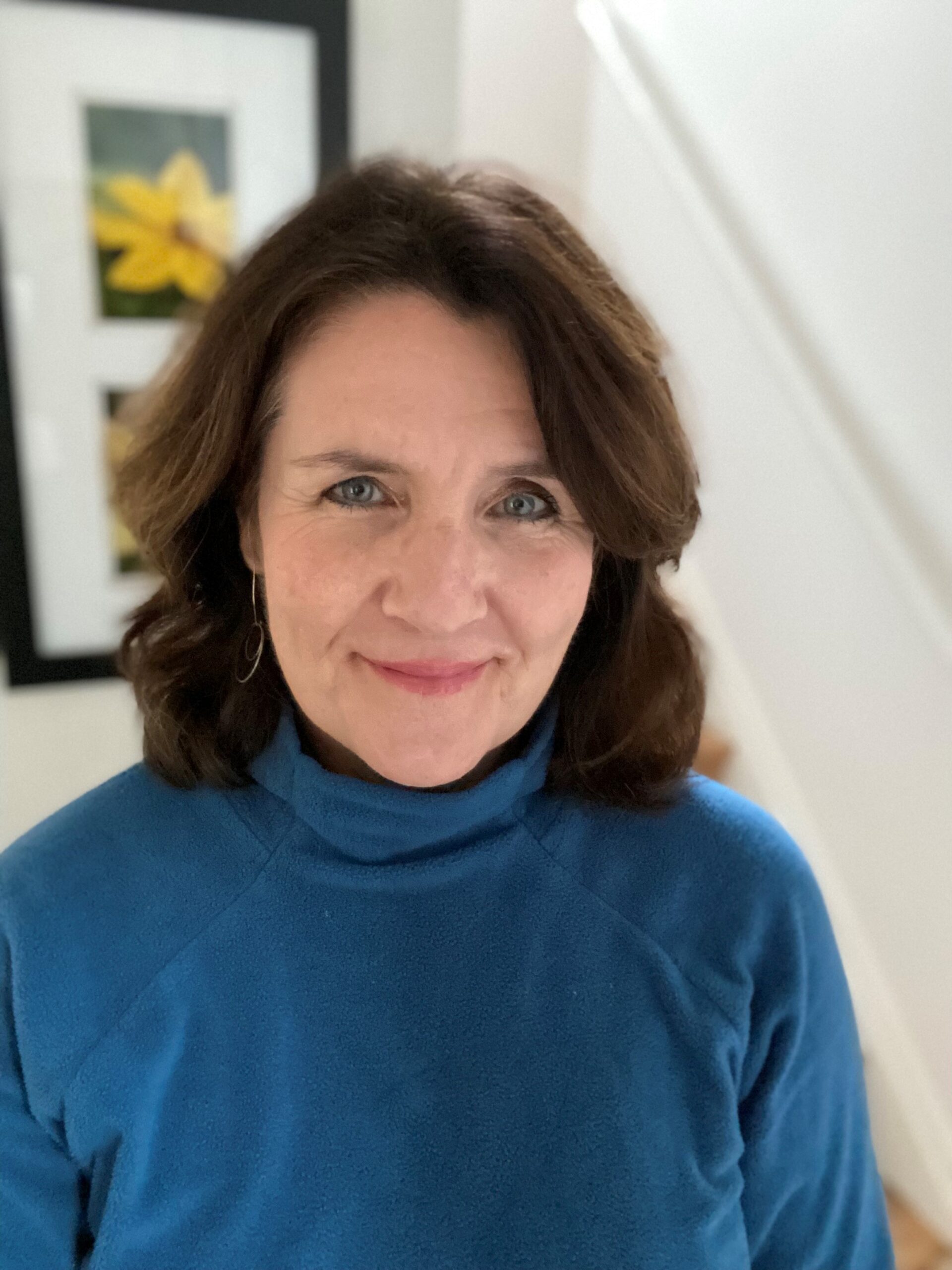Opinion: Seeking A New Law To Grant Rights To The Connecticut River

Connecticut River Greenway State Park, Sunderland, MA. Photo: Wikimedia Commons (CC BY-SA 3.0)
The following remarks were offered at a rally in Northfield on May 27, 2023 to protest the relicensing of the Northfield Pump Station and Turners Falls Dam.

I write to protest the devastating ecological harm to the beautiful and majestic Connecticut River, caused by the Northfield Pump Station and Turners Falls Dam, owned by FirstLight Power. I, like many others, am concerned that FERC (the Federal Energy Regulatory Commission) will soon issue new licenses to FirstLight Power to continue its wanton destruction of the river for another 50 years.
What can we do to stop this?
Western Massachusetts Rights of Nature, was formed in response to this question. Rights of Nature is a global movement recognizing that the laws and institutions of much of the settler world have abjectly failed to protect the natural world and are inherently incapable of doing so. Here in the United States, as in many places around the world, it is only people and corporations (and mostly those with wealth and power) who have legal rights and standing in courts of law. The animals, plants and ecosystems we share this planet with are treated as our personal property; frequently subjected to unchecked exploitation, greed and extractive practices. FirstLight’s revenues of over $1.76M in a single year from its Northfield and Turners facilities is a prime example of this.
In this country, we have institutions with names like the Environmental Protection Agency and the Massachusetts Department of Environmental Protection, but these institutions do not truly protect or serve as guardians of the natural world; the most they are capable of doing is mitigating harm. Anyone who has participated in an environmental regulatory proceeding in this country (such as the current FERC relicensing) knows this truth firsthand.
Rights of Nature seeks to change this, by passing laws that confer legal rights and standing on the natural world. For example, in New Zealand, the Whanganui River now has legal status as a living entity and in this country, legislation has been introduced to the New York State Assembly that would give the Great Lakes and its watersheds the unalienable and fundamental rights to exist and flourish.
Our group seeks to pass local legislation that recognizes the right of the Connecticut River as a living entity with its own intrinsic and defensible rights, such as to flow free, to support all the plants and animals that are part of its ecosystem, to be free from pollution and to feed and be fed by sustainable aquifers. If such legislation existed today, the river would have a voice in the current FERC relicensing.
But our work is about more than just passing a law; it is about recognizing our desperate need to change how we think about ourselves and our relationship to the natural world. The current dominant view of animals, plants and ecosystems as separate and apart from people, as commodities to be bought, sold and exploited for profit, is not just destroying the natural world it is destroying us. Our current ways are not sustainable, and this becomes more evident every day. The river desperately needs our help, but perhaps more importantly for us, we desperately need to help her; in recognizing the intrinsic rights of the river and all creatures and ecosystems, we move toward restoring our proper relationship with them. It is only through doing this critical work that we have any hope of saving ourselves and this precious world we inhabit.
Sarah Matthews is a resident of Amherst



This is another exaggeration of the impact of the Northfield Project on the Connecticut river. The pump-storage installation has been operating for more than fifty years. It has provided reliable and vital power with minimal environmental impact. The CT river is in better condition biologically and environmentally than probably in the past 100 years.
We need reliable electricity to reduce greenhouse gases. Pump-storage system are very compatible with non-fossil fuel generation: solar, wind, geothermal, etc. Having lost nuclear power, our region has less reliable electric energy.
BTW, the Northfield project provides excellent scenic and recreational facilities to the public at minimal cost.